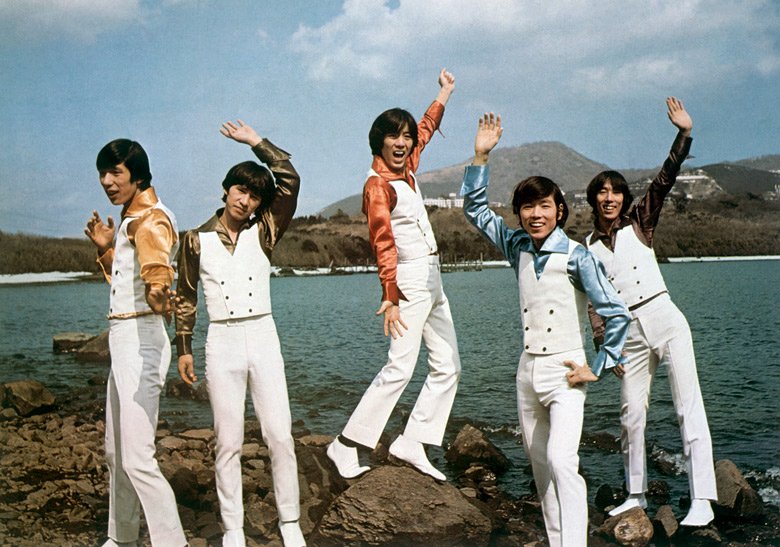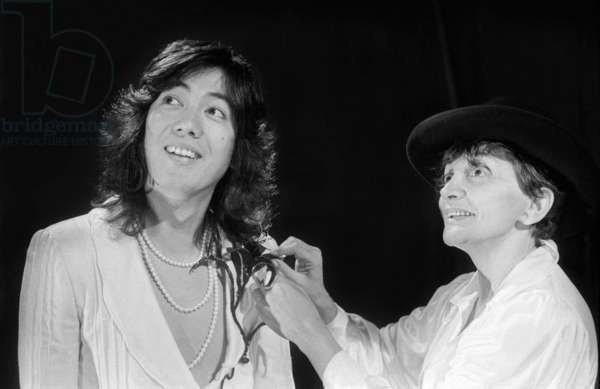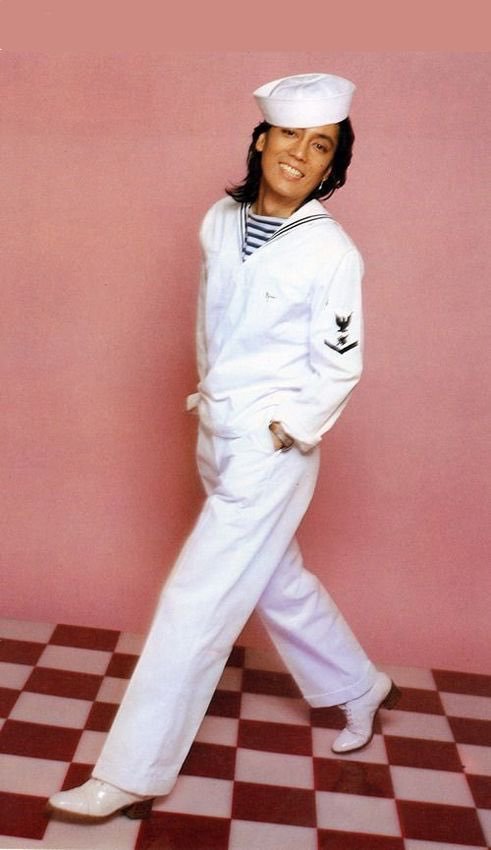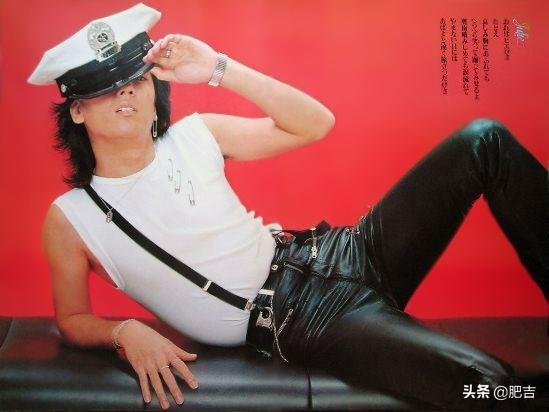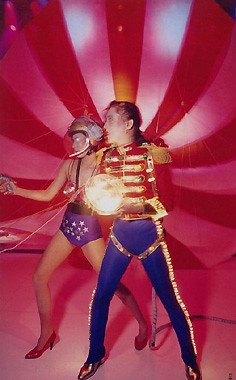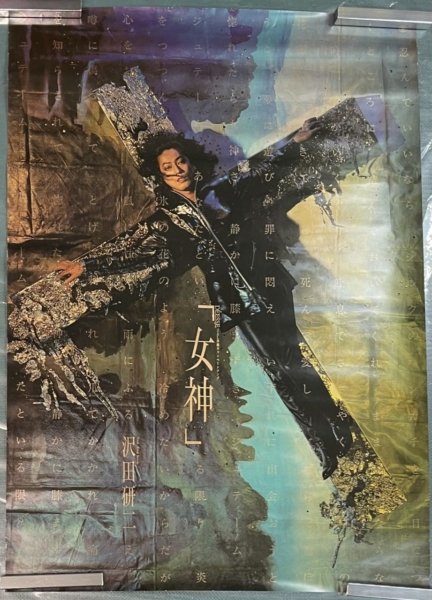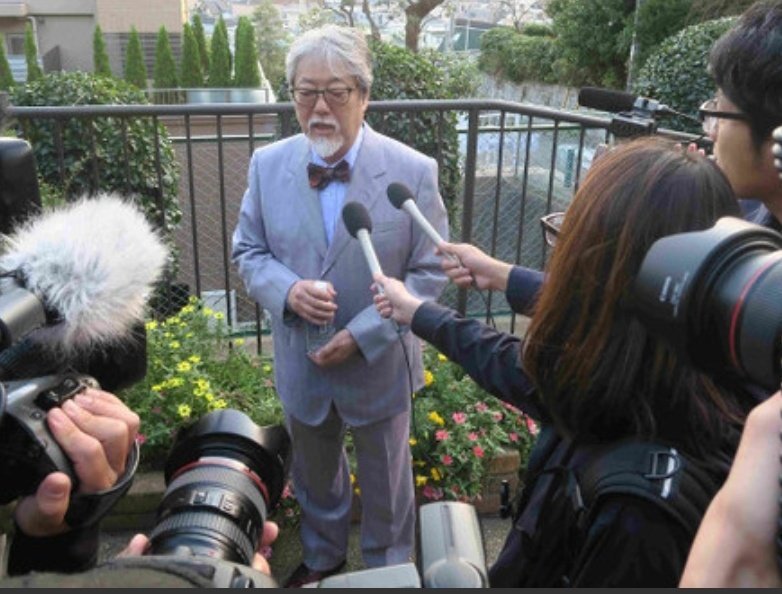Episode 65: Sawada Kenji—The Man Who Stole the Sun feat. Zach Langley Chi Chi
My guest for this episode is Zach Langley Chi Chi of the I’m So Popular Podcast! The two episodes I mention are the one on Mishima and the excellent film (starring Julie) and the one on White Girl in Japan movies but check out the whole back catalog!
The subject of this episode is Sawada Kenji (沢田研二) aka Julie and the film The Man Who Stole the Sun (太陽を盗んだ男), in which he played the main character… the man who stole plutonium to create his own atomic bomb.
I’ve been fascinated by Julie for over a decade now and the more I learn, the more deeper I fall. He’s truly the Biggest Pop Star you’ve never heard of. For some background, I’ll point people to the three episode series I did on the rock group the Tigers, of which he was the lead singer. I also have a review of the teen-sploitation Tigers film Hi London (1969).
As we discuss in the episode, there is very little available on Sawada in English. For reasons I could not figure out, he’s painted as a villain of Julian Cope’s terrible Japanrocksampler, which is basically the only thing easily available in English if you’re interested in the era. Cope is cagey on both his sourcing and language ability so I’d take his word on Sawada with a massive grain of salt. Maybe Cope was personally offended that Sawada didn’t Stay True to the Authentic Spirit of Rock’n’Roll as understood by a foreign journalist, and instead of playing underground shows at grimy rock venues, Sawada went on television and wore spangled outfits while singing love songs. Who can say what got the bug up Cope’s butt on Julie but the market is wide open for anybody else willing to write the book on one of—if not the most—fascinating Pop Star in Japanese history.
Julie has evaded the City Pop branding, unlike some of the other classic mid-late 20th century Japanese singers and I can only think it’s because his catalog is far too unwieldy and difficult to shove into a trend box. His image morphs from chocolate box 星の王子 princely teen idol in the 1960s through hard rock to sophisticated and urbane French chic to gonzo electro-weirdness, SS leather daddy, sexy retro sailor, greasy Meatloaf belter, and today he’s Japan’s grandpa. He’s all of these and none of them. “Julie” is a performance.
(The video I reference in the episode of Sawada transforming into “Julie.”)
I play a ton of songs in the episode to give you a taste and it looks like you can listen to Sawada on Spotify. I recommend checking out the greatest hits collections Royal Straight Flush, as well as his excellent 1977 album 思いきり気障な人生 (Omoikiri Kizana Jinsei), which has 勝手にしやがれ (Katte Ni Shiyagare), サムライ (Samurai), and 憎みきれないろくでなし (Nikumi Kirenai Roku Denashi). I’ll also recommend Julie II, which was recorded in London and is one of the most beautiful sounding albums ever.
You also cannot go wrong with dialing up a random performance (or two or three) on the streaming platform of your choice. I always recommend “Casablanca Dandy” for a good time:
Sawada through the ages… from top left is the Tigers, with the idol costuming that is still present in pop culture today. Continuing around, the David Cassidy shag beauty era, the sexy sailor, leather daddy SS chic, glam Euro Trash, the “Tokio” light suit, his long haired middle-aged 女神 era, and today’s Colonel Sanders meme era.
Sawada was never a political figure—it was forbidden by his agency Watanabe Productions—so he’s an interesting choice for the lead character of The Man Who Stole the Sun (1979). If you can find a copy of the film, it’s well worth watching. The film has no reputation good or bad in the Anglosphere but in 2018, it was chosen the best film of the 1970s by Kinema Junpo magazine, which would imply it’s very well remembered in Japan, even today. The review I referenced in the New York Times by Janet Maslin in 1982 shows the complete lack of context that an American audience would have brought to it (emphasis added):
It's not quite clear who, if anyone, is the hero of this story. When the two antagonists confront each other, they're more or less on an equal footing. ''You like high places,'' the cop coolly observes of the bomber. ''Yeah, fools and goats always do,'' the bomber replies. Clearly, each has met his match.
''The Man Who Stole the Sun'' has enough false endings to make it much too long. It also has enough vitality to make it a noteworthy, if somewhat ridiculous, addition to the roster of tough-cop-versus terrorist dramas. As for the Rolling Stones, they don't show up, either in Tokyo or in this movie. Their likeness is seen on a poster that is plastered everywhere, that's all.
The context Ms. Maslin was missing was the massive, left-wing student-led terror spree of the 1970s. (Patricia Steinhoff is a great source on this in English.) Incidents like the Mitsubishi Building bombing of 1974, the Yodogo Plane hijacking, Shigenobu Fusako and the Tel Aviv airport massacre, and the horrific purges of Asama would almost certainly have been on the minds of a domestic Japanese audience watching the film. (The trailer for the film Zach mentions on the Asama incident is here.)
Perhaps only an outsider living in Japan like Leonard Schrader (Paul Schrader’s brother) could have captured the zeitgeist with such brutal clarity. Both the beauty and the nihilism.
A few other notes—Murakami Shingo (aka “Hina”) is a member of Kanjani 8. He’s the purple one in this video. He does a variety show the fabulous Matsuko Deluxe, who you can see in action here, getting mad about K-Pop. I did a translation of her essay on Hello Project back in 2015. Golden Bomber are a great act. Their big hit is 女々しくて but they’re still making songs. My favorite of their recent ones is LINEのBGMにしてるとモテる曲.
The songs played are:
“Heavy Gate” by Morning Musume ‘23 (Official MV)
“U.S.A.” by Da Pump (Official MV)
“Satisfaction” by the Tigers (Rolling Stones cover, lead vocal by Sawada Kenji)
“6番目のユ・ウ・ウ・ツ” by Sawada Kenji
“TOKIO” by Sawada Kenji
“サムライ” (Samurai) by Sawada Kenji
“勝手にしやがれ” (Katte ni Shiyagare) by Sawada Kenji
“魅せられた夜 (Mais Dans La Lumiere)” by Sawada Kenji
“追憶” (Nina) by Sawada Kenji
“憎みきれないろくでなし” by Sawada Kenji
“時の過ぎゆくままに” by Sawada Kenji
“カサブランカ・ダンディ” (Casablanca Dandy) by Sawada Kenji
“ダンスの理由” by 平手友梨奈 (Official MV)
“憎みきれないろくでなし” by Sawada Kenji
